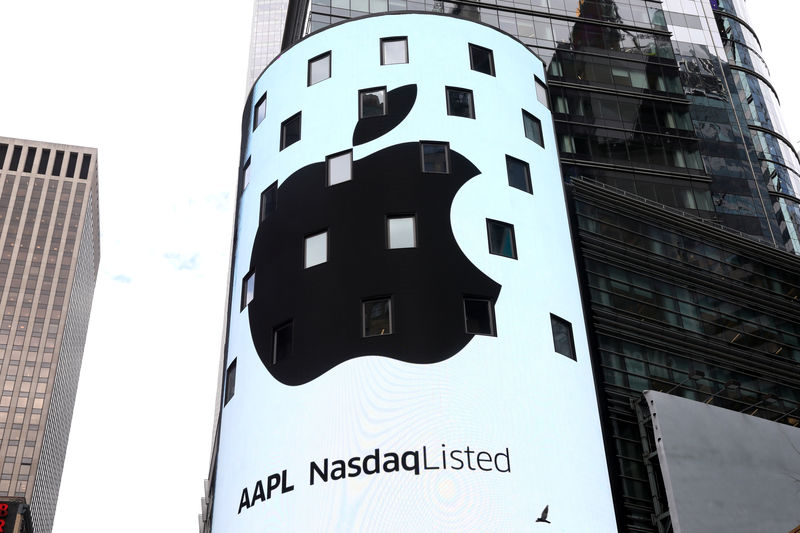By Lewis Krauskopf
NEW YORK (Reuters) - The Nasdaq Composite Index (IXIC), known for its high-profile technology and internet companies, closed no more than a rounding error from bear market territory on Thursday.
The index during the session fell into bear territory, which is defined as a 20 percent drop from its previous high, but it ended above its lows for the session, sparing it for now from confirming a bear market.
The Nasdaq's descent in less than four months is the latest sign that the bull market that began in the depths of the financial crisis a decade ago could be coming to an end.
The Nasdaq is the first of the three closely watched U.S. stock barometers to fall into bear territory, with the S&P 500 (SPX) and the Dow Jones Industrial Average (DJI) down about 15 percent from their respective highs.
"The Nasdaq is like Icarus. It's flown too close to the sun, in that it's had a bigger run-up," said Kristina Hooper, chief global market strategist at Invesco in New York.
"It's gone up significantly more than the other major indices and that has a lot to do with why it's fallen the most."
Other segments of the market had already moved into bear territory, including the Russell 2000 (RUT) small-cap benchmark and the Dow Jones Transport Average (DJT).
The Nasdaq, however, stands out.
"It's always the raciest and spiciest of the indices because it has all of the growth names in it," said Michael Antonelli, managing director of institutional sales trading at Robert W. Baird in Milwaukee. "When growth expectations change, like they have radically over the past few months, the first place they're going to go is to the Nasdaq and absolutely slam it."
The latest bout of selling, which on Thursday dragged the Nasdaq to its lowest since September 2017, comes a day after the Federal Reserve raised interest rates for a fourth time this year, as the U.S. central bank continues to unwind the low interest rate policy that supported stocks for nearly a decade.
Investors are also grappling with concerns that the trade tensions between the United States and China are undermining the economy, and an expected steep slowdown in U.S. profit growth next year.
At its lowest point on Thursday, the Nasdaq fell about 2.9 percent, resulting in a 20.5 percent decline from its Aug. 29 record closing high.
The index ended down 1.6 percent on the day, 19.5 percent off its closing high.
The Nasdaq's slump has been driven by a steep fall in shares of many large tech and internet companies that have led the stock market during its long bull run.
Apple Inc (O:AAPL) shares, for example, have fallen nearly 30 percent since the start of November, following the iPhone maker's disappointing sales forecast for the holiday quarter.

Since the Nasdaq hit a record high in late August, Amazon.com Inc (O:AMZN), Facebook Inc (O:FB) and Netflix Inc (O:NFLX) have all tumbled about 25 percent or more.